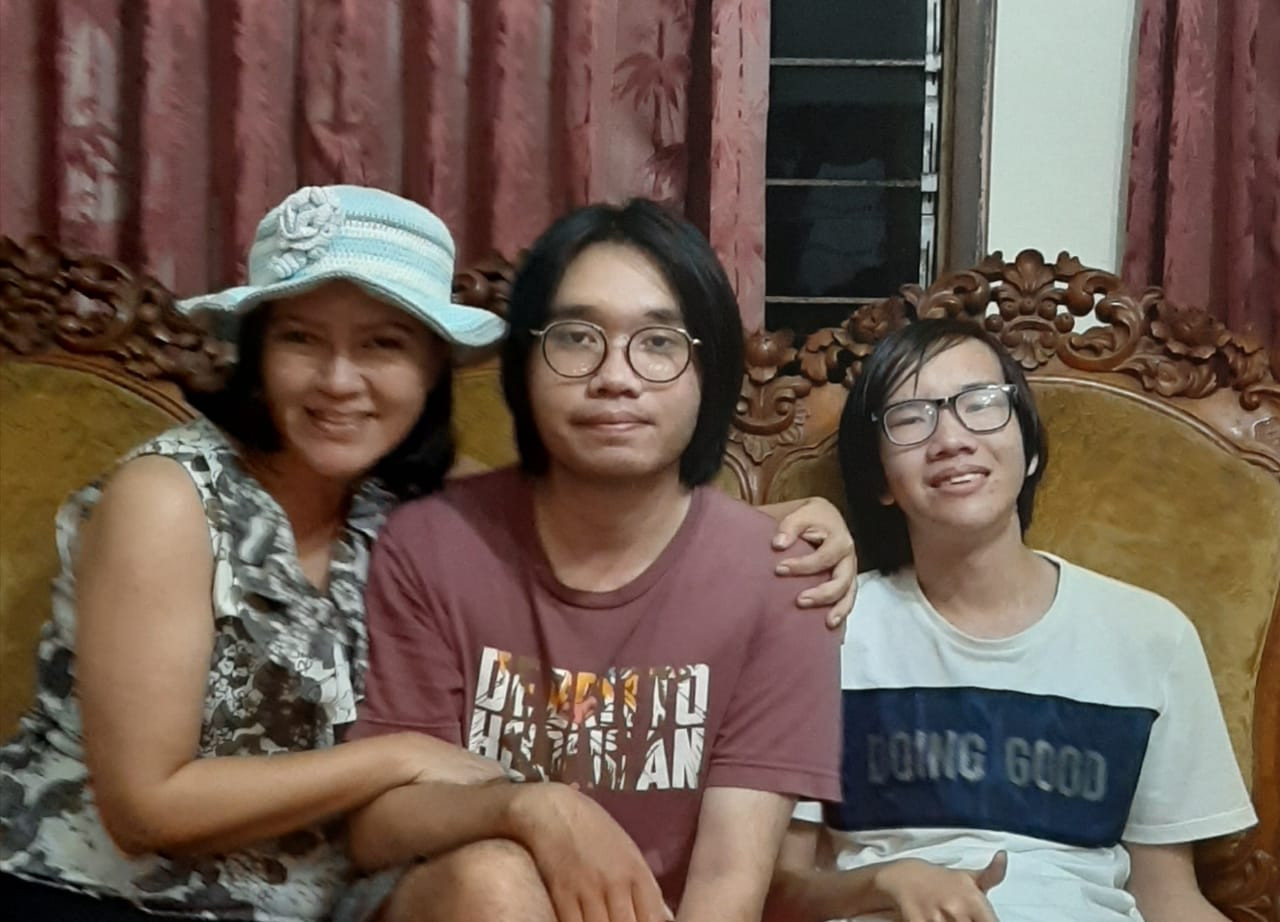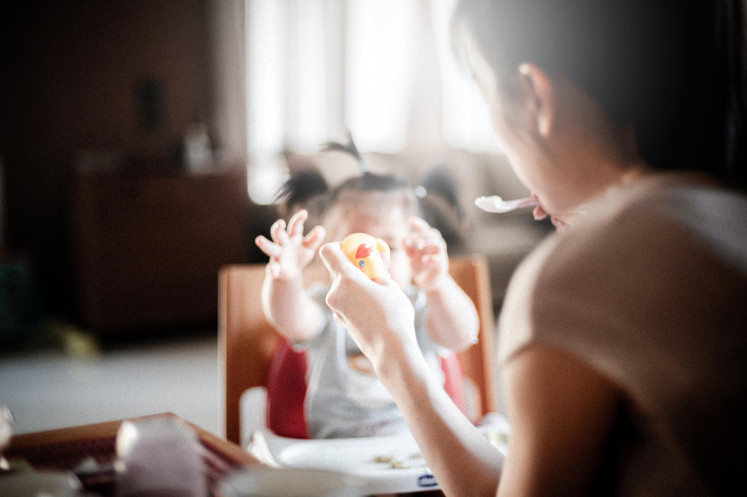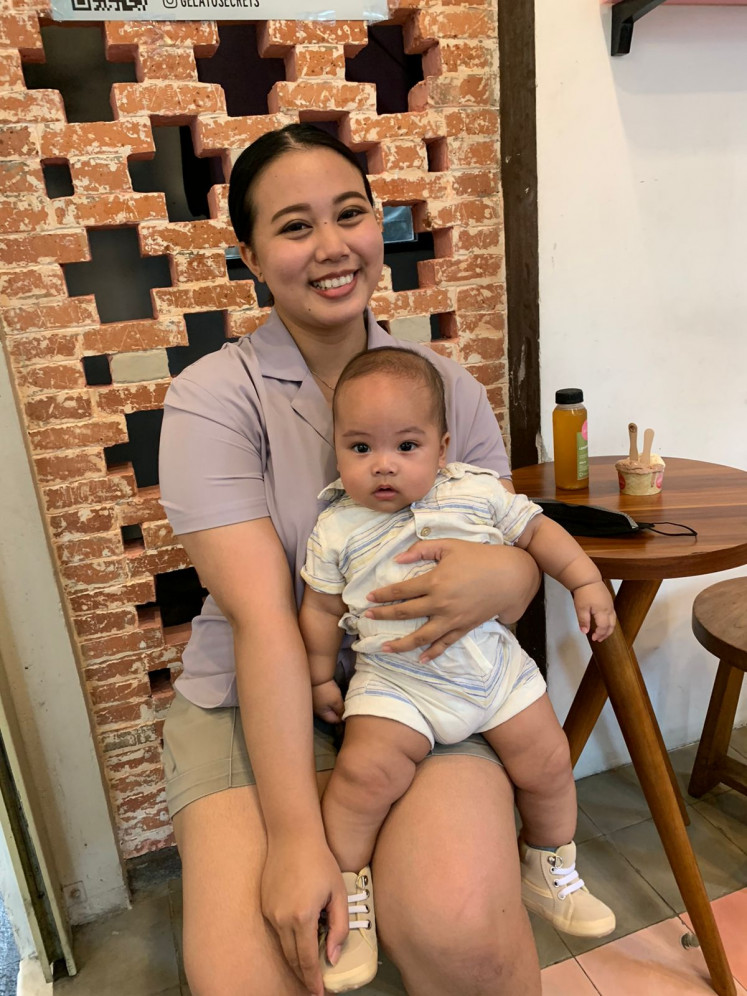Popular Reads
Top Results
Can't find what you're looking for?
View all search resultsPopular Reads
Top Results
Can't find what you're looking for?
View all search resultsWith syrup medicines banned, how are parents treating their sick children?
Change text size
Gift Premium Articles
to Anyone
W
ith a number of syrup-based medicines now banned by the country, parents share their current, temporary solutions for their children’s light illnesses.
Indonesia has announced a temporary ban on syrup-based medicines and their over-the-counter sales amid an ongoing probe into an unexplained rise in acute kidney injury (AKI) causing nearly 100 children mortal cases.
Living in a country rich in flora, fauna and tradition, Indonesians have access to an abundant availability of various species of plants some believe have medicinal functions. Across Indonesia’s myriad cultures, from Chinese to Javanese Indonesians, recipes have been handed down to keep families healthy, including through cia po (derived from the Hokkien dialect, the term can be translated as simply ‘tonic’) and jamu.
The Jakarta Post speaks to parents who now, at least temporarily, rely again on these herbal remedies to cure mild ailments in their children.
Non-medicine treatment
Theresia Olivia, a 47-year-old mother from Yogyakarta said that she often boiled aromatic ginger in water and added a little bit of palm sugar to treat her son's cough, or lemon, ginger, and honey to treat her children's fever. Ginger is believed to have anti-inflammatory properties.
Theresia has two children, 20-year-old Christopher Caniswara and 16-year-old Jonathan Hardy.
She added that such treatments have been used in her family since she was young, and her grandmother had passed down the recipes to her. She said that consuming herbal medicine had helped her recovery faster than when she consumed manufactured medicine. She admitted to always having a preference for herbal medicines, in any case.
“I think when we consume less chemical-based medicine products, our body becomes healthier, which helps our body recover from any sickness swiftly,” Theresia continued.
Lovisa Claudya Ismiarso, a 26-year-old mother of a five-month-old named Jay, has also been using methods such as skin-to-skin compress, believed to reduce fever.
"Because the syrup medicines are not available, we are trying the traditional way, so at least we are able to reduce our son’s fever," Lovisa said.
Lovisa said that her child's doctor also advised using puyer (powdered-based medicine) to treat her child. Lovisa found the treatment was helpful for her son but, Lovisa admitted, it had not been as practical as syrup-based medicine, as powdered base medicine needed more time and elements to prepare – which was not easy for a mother of a small baby.
Similarly, Felicia Sonya Novita Martono, 26, mother of a 1-year-old son, stated that she had also been cooking chicken or beef stock for her son during his recovery. She said that since chicken contained Omega-6 fats, and beef stock contained more Omega-3 fats, they were suitable for reducing inflammation in the body. She also used essential oil such as lavender oil that contained ingredients such as linalool, linalyl acetate and camphor4 which act as anxiety relievers and sedatives.
"I cooked the chicken broth for my son because it will help him get his appetite. Other than that, I also used essential oil, as an aromatherapy to improve sleep," Felicia said. Felicia continued that she preferred paracetamol or prescribed syrup medicine.
“Well, if our children are unable to rest during their recovery, we will also be unable to get proper rest too,” Felicia said.
Do's and don'ts
Theresia, who was a medicinal practitioner, along with Alexander Pratondo, 50, at Jampi Seger Waras, a local jamu product in Yogyakarta, said it was important to check a person's allergic reaction toward certain spices or plants. As Alexander explained, herbal medicine or jamu consisted of several components, whic herbalists and consumers must be aware of.
The four main components consist of primary ingredients to treat the source of the disease and complementary ingredients to treat the resulting symptoms. Then there are other ingredients such as palm sugar so that the taste of the herbs or herbal medicines is palatable.
"However, it takes a [longer] process, because we have to understand the nature of the plant itself. Then, we can learn how we mix the ingredients." Alexander explained.
Alexander took an example of herbal medicines for kidney stones, from which he used kecibeling (Strobilanthes crispa), tempuyung (perennial sow thistle), kumis kucing (Orthosiphon aristatus) and gempur batu (Ruellia napifera).
"Actually, kecibeling is said to be a potent drug, because it consists of crushed stones splintered like glass, individuals could get a urinary tract infection when using kecibeling unsupervised," Alexander explained.
Alexander said that patients needed to consult the doctor before consuming herbal medicine. They have to understand the body's mechanism when it is infected by a particular pathogen.
"For example, when someone feels dizzy, dizziness is a symptom, but the source of the [dizziness] could be from an ulcer, so they can't just take all drugs," Alexander continued.
Dicky Budiman, 51, a Bandung-based health practitioner and a researcher at a global health security firm, explained that although herbs had been used in medicines since ancient times, users needed to be fully aware of what went into them and how it allegedly worked.
Dicky said, however, that consuming herbal material was still essential as a means of maintaining health. For example, drinking ginger to keep warm during cold weather.
He said that physical mechanisms such as a fever, flu or cough were examples of how the body fights against infections by bacteria or viruses, noting that it was our body's natural response. He advised individuals not to hurry about consuming medicine while being sick.
"For example, when we have a cough, we often have sputum containing the toxin inside our body and it shows that the body tries to fight against the pathogen without the help of medicine," he says.
"Therefore, it's also suggested that consuming [chemical] medicine is not necessary when the symptoms are mild," Dicky concludes.













